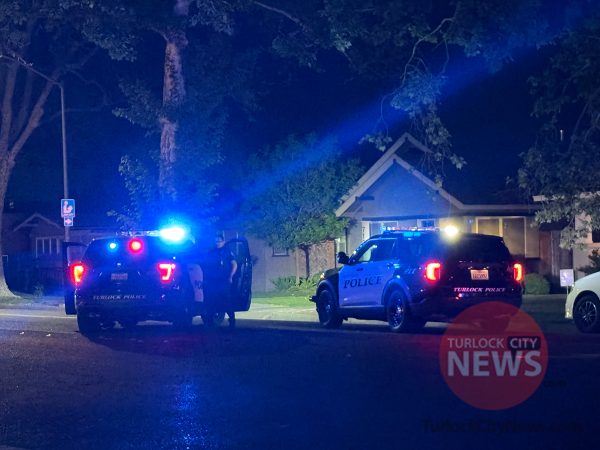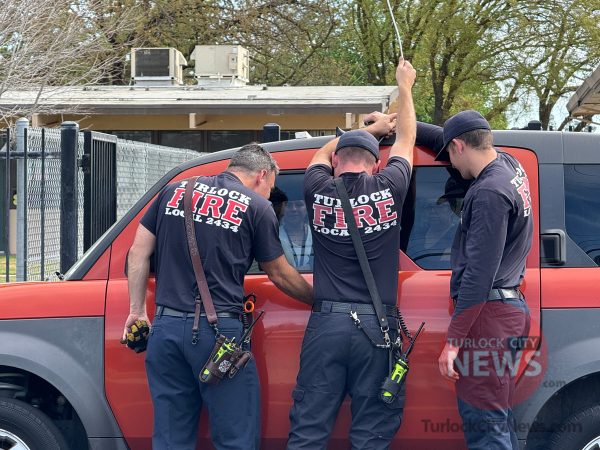TURLOCK - For the third straight year, California State University, Stanislaus has been recognized nationally for its community service activities as a recipient of the President’s Higher Education Community Service Award.
CSU Stanislaus is one of 11 California State University campuses to receive the nationally recognized community service award also known as the President’s Honor Roll. The award is co-sponsored by Corporation for National and Community Service, the U.S. Department of Education, the Department of Housing and Urban Development, USA Freedom Corps, and the President’s Council on Service and Civic Participation. The recognition is presented in cooperation with Campus Compact, a national coalition of nearly 1,000 college and university presidents, and supported by all the major national higher education associations.
The University’s service to the community drew additional national recognition in December 2008 as one of only five universities in the CSU system and one of an elite group of 119 colleges and universities that were named to the Carnegie Foundation’s Community Engagement listing. That prestigious program recognizes the community connection activities of the nation’s higher education institutions.
“During these difficult economic times, a strong community service ethic is even more crucial,” said Dr. William T. Covino, CSU Stanislaus Provost/Vice President for Academic Affairs. “The faculty at CSU Stanislaus are committed to developing and nurturing that ethic, and on their behalf, I am very grateful for this recognition.”
The CSU Stanislaus Office of Service Learning works closely with faculty on more than 50 classes per semester that help over 2,000 students a year learn through community involvement while also providing some 30,000 volunteer hours of service.
“We are pleased and excited to be included again in the President’s Higher Education Honor Roll,” said Julie Fox, Director of the Office of Service Learning. “Every day at the Office of Service Learning, we have the privilege of seeing dedicated faculty, students, staff, and community members come together and work side by side to learn about and improve the quality of life in our community. While we face many challenges as a region and a state, we are fortunate to be able to offer high quality programs dedicated to working together for solutions.”
Some examples of the University’s community engagement activities include a home-based literacy program serving families challenged by poverty, income tax preparation for low-income seniors and migrant workers, mentoring at-risk youth, science education in K-12 classrooms, public policy, healthy families, and environmental sustainability. Programs highlighted in the award recognition included:
Parent Child Home Program: Students in the Child Development class “Early Intervention with High Risk Children” work with the Parent Child Home Program, which is an innovative home-based literacy and parenting program that serves families challenged by poverty, language barriers, and other obstacles to educational success. Since the inception of the program five years ago, over 300 Child Development students have worked with some 300 low-income families. Community partners on this project include the Parent Resource Center and Stanislaus County Office of Education. The program helps to increase literacy development in young children. Pairs of University students work one-on-one with families to encourage literacy development and greater parental involvement.
Criminal Justice Mentor Program: Criminal Justice students in the “Juvenile Justice” class mentor at-risk Turlock Unified School District elementary, junior high, and high school students. Known as “Pathways to Success,” this program is in its fourth year. To date, the program has served over 400 younger students and provided a mentoring opportunity to over 240 University students who serveas role models demonstrating success and positive choices. According to CSU Stanislaus Criminal Justice student Jessica Cesplano, the protégés often suffer from hunger anxiety, have affiliations with gang activity, or have been involved in the juvenile court system. It is not uncommon for CSU Stanislaus students to have had similar challenging backgrounds as the protégés they are now assisting, which becomes a common bond in their relationship.
Passport To University: Teacher Education students participating in the “Foundations of Education in a Diverse Society” class work with underprivileged seventh and eighth graders in Stockton on community service projects and curriculum that encourage wide involvement in the “Passport to University” project. The program is part of an innovative partnership with Pittman Elementary School and numerous community partners in Stockton. Over the past two years, over 250 University students and more than180 junior high students, as well as their parents and faculty at Pittman Elementary, have expanded the classroom into the diverse Stockton community. University students use active teaching strategies through increased involvement with Pittman parents, students, and community partners to raise cultural awareness and develop a community-based school.
Salvation Army Seniors Project: Students in the “Child Development in Cultural Context” class work with local senior citizens through Turlock’s Salvation Army facility to develop memory books that tell the story of each participating senior’s life. The participating low-income seniors showcase their lives andhighlight the personal and historic changes they have experienced. One seniorparticipant said, “I didn’t feel I was important anymore, but working on the scrapbook let me know how far I had come and how much I could still accomplish.” This project is in its third year and has included more than 90 seniors and over 85 students. The project has been so successful that seniors contact the local Salvation Army throughout the year to sign up for the annual fall program.






